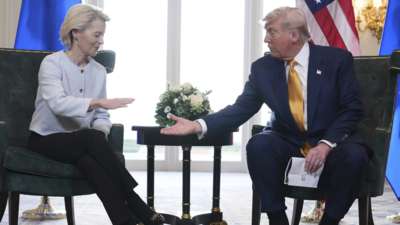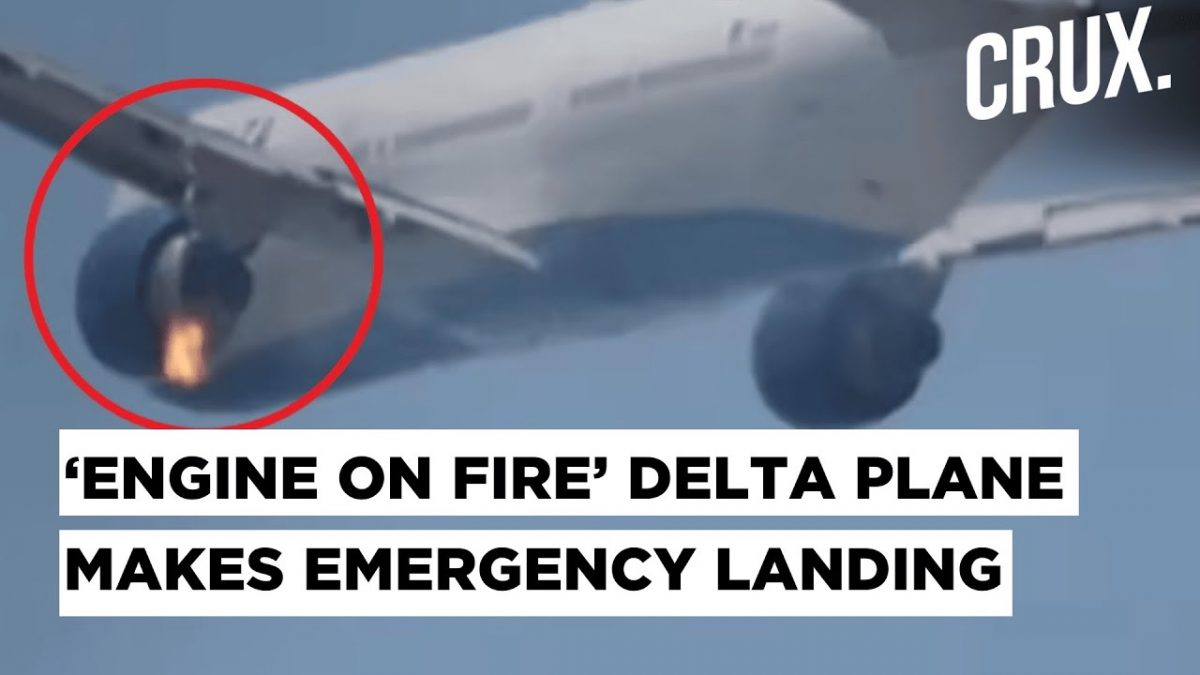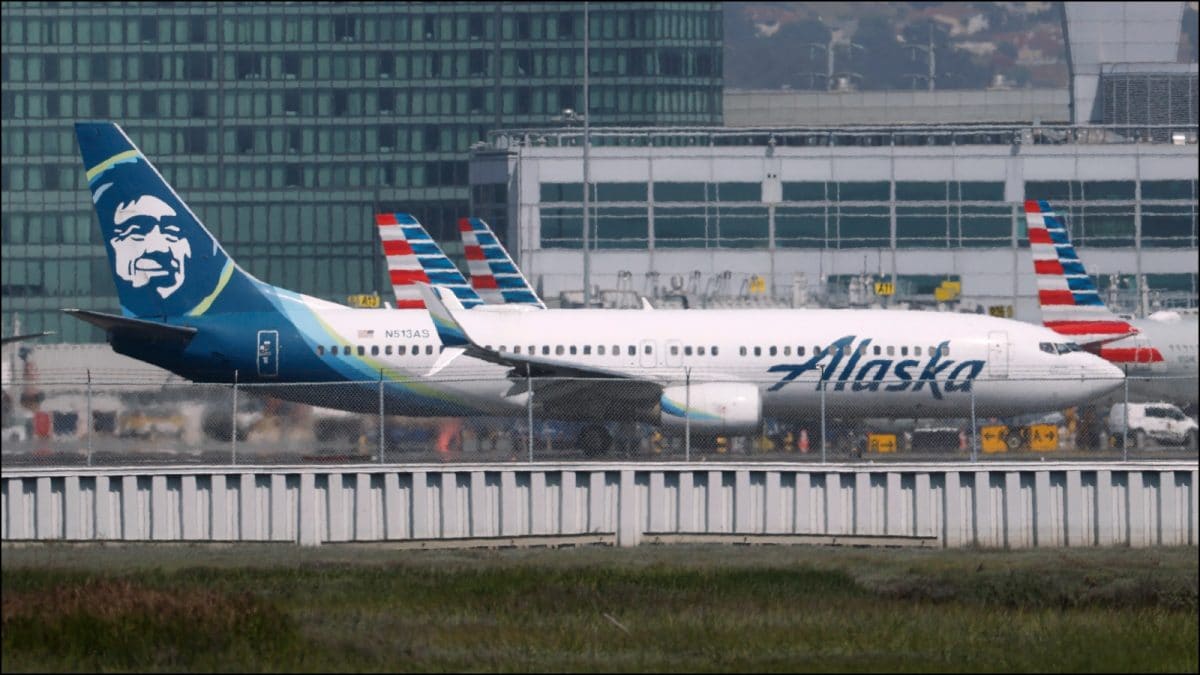ARTICLE AD BOX

The European Union and the US agreed on Sunday to a broad-brush trade deal that sets a 15% tariff on most goods, including cars, President Trump announced, at least temporarily bringing an end to months of tense negotiations with a bloc that is the US' single biggest source of imports.Trump said that the EU had agreed to purchase $750 billion of American energy and to increase its investment in the US by more than $600 billion above current levels. He also said that the EU would buy military equipment and that no tariffs would be imposed on some goods. Trump implied that the 50% tariff he had imposed on steel and aluminum globally would remain as is, saying it's a "worldwide thing that stays the way it is.
" Other details of the pact were not immediately available. The agreement will "rebalance, but enable trade on both sides," Ursula von der Leyen, the president of the European Commission, the executive arm of the EU, said as she sat next to Trump as the leaders made the announcement."We made it," Trump said.Though the agreement appears to be a preliminary one that leaves many questions to be resolved, it could bring a measure of calm to one of the world's most important economic relationships and allay fears of an escalating trade war.
The EU last year accounted for nearly $610 billion of the $3.3 trillion in goods imported by the US.The tariff rate is higher than the 10% tax that Europeans had been angling for, and that Trump applied to British goods. But 15% mirrors the main tariff rate of the US-Japanese trade agreement that was announced last Tuesday, and is lower than the 19 and 20% rates imposed on several Southeast Asian countries.The deal followed weeks of unpredictable talks.
Even after that announcement, von Der Leyen stressed the importance of continuing talks and trying to reach a negotiated deal. But the EU also continued working to put the finishing touches on a plan to retaliate against Trump's tariffs, one that could be enacted quickly if needed. Bringing down the tariff on European auto exports was a sticking point for the Europeans, especially Germany, the largest EU economy. European automakers, which sent cars worth 38.5 billion euros ($45bn) to the US last year, have been suffering under the 27.5% tariffs imposed by Trump in April.Pharmaceutical tariffs were another key issue. the US threatened last month that it could raise tariffs on pharma - Europe's largest export to the US - to 200%. Such a high tax would have been crushing for the industry. The govts did not clarify what would happen to tariffs on pharmaceuticals.



.png)
.png)
.png)
















 6 hours ago
5
6 hours ago
5








 English (US) ·
English (US) ·